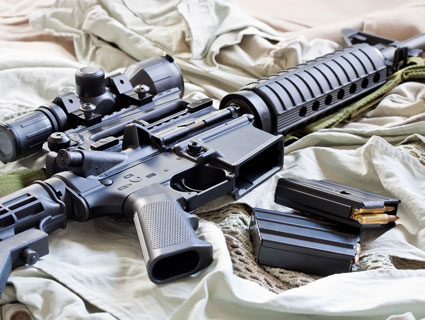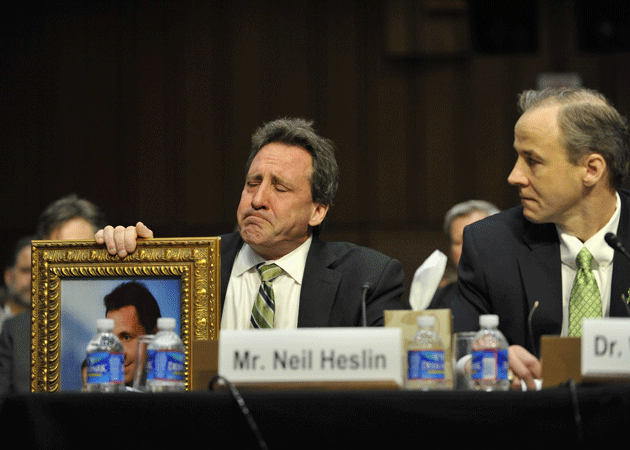
<a href="http://www.shutterstock.com/cat.mhtml?lang=en&search_source=search_form&version=llv1&anyorall=all&safesearch=1&searchterm=handgun&search_group=#id=123267022&src=A6B80202-851A-11E2-97F4-65BF37D0D1A0-1-0">IgorGolovniov </a>/Shutterstock
On Tuesday, Rep. Luis Gutierrez (D-Ill.) introduced a ban on “Saturday Night Specials,” which are really cheap, crappy handguns traced to a whole lot of crimes.
As Congress considers gun control measures in the wake of the bloody Newtown massacre, the national focus on urban violence has sharpened as well. Gutierrez’ congressional district includes Chicago, one of the most violent cities in the country. Saturday Night Specials, or “junk guns,” which are small and easily concealable, and made with inexpensive, shoddy materials, are disproportionately associated with in the violence in low-income urban neighborhoods. Of the top ten most-traced crime guns by the ATF from 2000, half were junk guns.
“This is an issue that has been important to me for many years,” Gutierrez said at a press conference on Monday. “Removing this dangerous subset of handguns from streets of Chicago and communities across the country will save lives.”
At least eight states already have laws regulating junk guns, and there is evidence that laws banning the sale of such guns can reduce gun deaths. A 2002 study published in the American Journal of Epidemiology found that Maryland’s junk gun ban reduced firearm homicides in the state by almost 9 percent between 1990 and 1998, and saved an average of 40 lives a year.
In 2003, the NAACP sued 45 gun manufacturers for targeting minority neighborhoods with these kinds of guns, alleging that the “negligent marketing” of Saturday Night Specials in black and Hispanic neighborhoods encouraged violence in those areas.
But it’s not so simple. Some say the ban itself would disadvantage poor minority communities. A 1983 National Institute of Justice study found that “[t]he people most likely to be deterred from acquiring a handgun by exceptionally high prices or by the non-availability of certain kinds of handguns are not felons intent on arming themselves for criminal purposes (who can, if all else fails, steal the handgun they want), but rather poor people who have decided they need a gun to protect themselves against the felons but who find that the cheapest gun in the market costs more than they can afford to pay.”
At the same time, junk guns are so badly made and inaccurate that some experts consider them inappropriate for self defense.
The proposed ban on the easily-concealed handguns comes just as an appeals court ruled that Illinois has to permit concealed carry in the state. “I think that this legislation is especially timely,” Gutierrez said, as “state legislators are grappling with sensible safeguards and restrictions for a conceal and carry law.”











